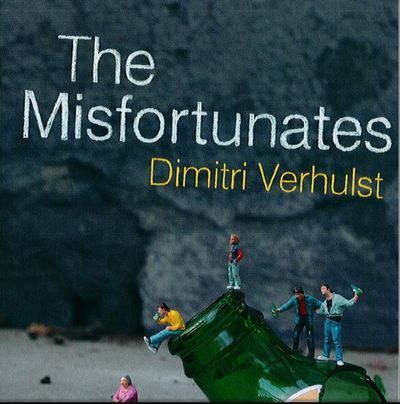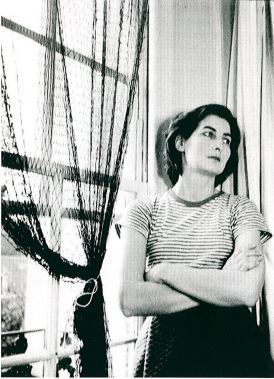‘Translation as Art’
By ADRIAN TAHOURDIN
The battle of the canapés was keenly fought. Representing France were the pissaladières, Germany called on its dumpling balls, the Low Countries wheeled out their puff pastries and the Spanish deployed tortillas. Europe House, the headquarters of the EU in the UK, yesterday evening hosted the annual Society of Authors translation prize presentations (co-sponsored by the TLS). In a spirit of open borders, the Hebrew translation prize and the Arabic prize were also represented (pickled cucumbers and honey pastries respectively, all delicious).
The translators’ readings were excellent: William Maynard Hutchins from the Yemeni novelist Wajdi al-Ahdal’s brutal novella A Land Without Jasmine, followed by Jonathan Wright and his version of Youssef Ziedan’s Azazeel which, Wright pointed out, was rare in being a novel in Arabic without any Arabs in it (it’s set in the fifth century).
Poetry was eloquently present in Ian Crockatt’s versions of Rilke and Beverley Bie Brahic’s beautiful rendition of Apollinaire. Frank Wynne was eloquent in his reading from the Peruvian novelist Alonso Cueto’s The Blue Hour while, in a starkly different tone, David Colmer raised laughs with his extract from Dimitri Verhulst’s visceral, brilliant novel The Misfortunates (set in Belgium rather than Holland), with its appropriate broken Lager bottle – Stella Artois? – on the cover. Todd Hasak-Lowy meanwhile injected existential anguish with his reading from the Israeli novelist Asaf Schurr’s Motti (although as Lowy points out in his Translator’s Afterword, while “People read Hebrew writers primarily to get The Story. The big one. The national one”, politics and history are entirely absent from Motti).
Translators travel: Maynard Hutchins from South Carolina, while Hasak-Lowy thanked the organizers for “getting him out of Chicago in February”.
This was followed by a conversation between Adam Mars-Jones and Dr Ian Patterson. I had assumed that Patterson would be interviewing Mars-Jones but it turned out to be the other way round. Patterson (Cambridge) is the translator of the final volume of Proust’s novel Le Temps retrouvé in the Penguin Millennium edition (each volume was assigned to a different translator), a volume he opted to entitle Finding Time Again (. . . to walk the dog?). Patterson revealed that he had been so pleased with his version of one passage that he broke the translator’s rule and looked up existing versions only to discover that his translation exactly replicated those versions! What, you might wonder, is a translator to do in that situation?
This is the sixth time I’ve reported for the TLS on the translation prizes. There has been a good deal of poetry: Luciano Erba, Paul Celan, Mahmoud Darwish, Adonis, Valerio Magrelli, Luis de Góngora, Quevedo, Valérie Rouzeau and Cavafy, and plenty of excellent novels: from Frédéric Beigbeder, Laurent Quintreau, Hans Keilson, António Lobo Antunes and Giovanni Arpino among others.
I was particularly pleased to be directed to George Seferis’s Levant Journal and fascinated to read Ron Leshem’s novel of Israeli army life Beaufort. The first translation (by Malcolm Imrie) of Gabriel Chevallier’s great Great War novel Fear was rightly celebrated last year, while a particularly welcome discovery for me was Thomas Pletzinger’s compelling Funeral For a Dog (for which Ross Benjamin was runner-up last year with his translation from German).
Striking to me is the number of translators who can operate in more than one language: multiple winner Frank Wynne can range from Houellebecq and Beigbeder to the excellent Argentinian novelist Marcelo Figueras and, this year, Alonso Cueto. Margaret Jull Costa covers both Spanish (Bernardo Atxaga and others) and Portuguese (Antunes and Eça de Queiroz), as does Peter Bush (Juan Goytisolo and Miguel Sousa Tavares). Anthea Bell does Asterix and Stefan Zweig while, by my reckoning Shaun Whiteside can do three languages (French, German and Italian). Other, highly accomplished, translators restrict themselves to one language: Susan Wicks, Michael Hofmann, Jamie McKendrick, Beverley Bie Brahic and Roderick Beaton.
Pre-eminent among the single-language translators was the French specialist Barbara Wright (below, 1950s), to whom a volume was recently dedicated: Barbara Wright: Translation as art, edited by Madeleine Renouard and Debra Kelly (Dalkey Archive Press). According to the editors Wright, who died in 2009, “could have become a brilliant pianist". Among the authors whose work she translated were Raymond Queneau, the nouveaux romanciers Alain Robbe-Grillet, Robert Pinget, Marguerite Duras and Nathalie Sarraute, Michel Tournier, Patrick Modiano and Jean Rouaud. She was appointed Officier dans l’Ordre des Arts et des Lettres in 1986 “for services to the French, language, literature and culture” and promoted to Commandeur in 2002.
She was also a clear-eyed reviewer for the TLS for many years, a pricker of pomposity, even if at times she could leave the reader bemused: of Michel Tournier’s wonderful collection of stories Le Coq de bruyère (1978) she concluded “M Tournier has a wide range of subjects, and of course he writes extremely well – but he still frightens me” (!)
Pinget perhaps provided the stiffest translating challenge for her (although Queneau’s Exercices de style would have run him close). How, for instance, does one render “Arrivée à la carrière la vieille posait son pliant dans l’herbe et se mettait à son tricot pendant que son bétail bêlant et bringueballant batifolait dans la betterave, . . . “ (from Passacaille, 1969)?
In Recurrent Melody (her loose title translation, 1975) Wright goes for: “When she got to the quarry the old woman put the folding stool down on the grass and got on with her knitting while her bleating beasts were bouncing about in the beetroot, . . .” OK, so she omitted “bringueballant”, “shaking” or “swaying”, which is a shame/a bit naughty, but it’s a plain, unadorned and effective translation. John Sturrock wrote of it in the New York Times Book Review in 1979: “Barbara Wright’s translation has matched Mr. Pinget’s French with wit and skill; she has kept the sense throughout and found the right equivalent sounds”.
Pinget’s advice to his English translator was “Don’t bother too much about logic: everything in Passacaille is directed against it”.
Peter Stothard's Blog
- Peter Stothard's profile
- 30 followers





